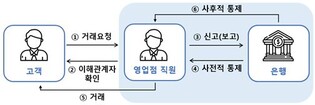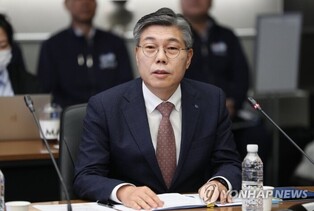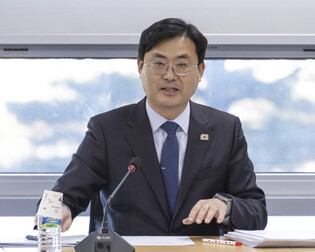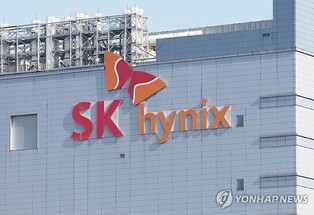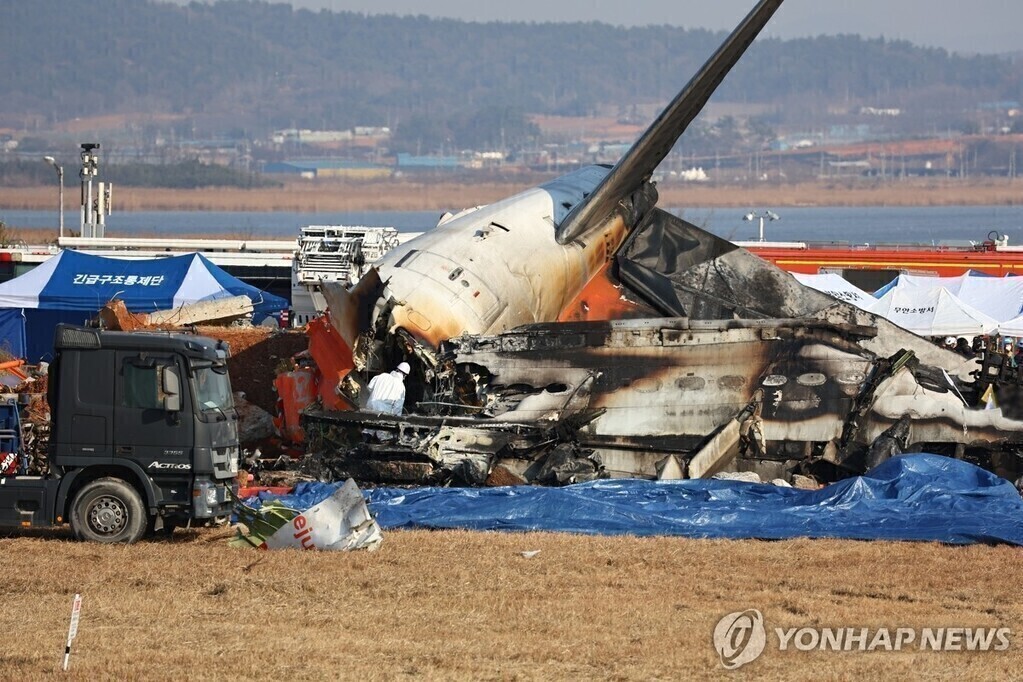 |
irefighters and emergency personnel search inside the wreckage of the Jeju Air passenger jet that exploded after a collision at Muan International Airport in South Jeolla Province on October 29. (Photo courtesy of Yonhap News Agency) |
[Alpha Biz= Paul Lee] SEOUL, October 29, 2025 — A South Korean lawmaker has claimed that CFM International (CFMI), the joint venture between GE Aerospace and Safran Aircraft Engines, was already aware of a structural defect in the CFM56 engine months before a Jeju Air aircraft (registration HL8088) suffered a critical failure at Muan International Airport in December 2024.
According to Rep. Kim Eun-hye of the National Assembly’s Land, Infrastructure and Transport Committee, CFMI issued a Service Bulletin (SB) in April 2023 warning internally that cracks in the high-pressure turbine blades could lead to full engine failure.
Documents obtained by Kim’s office indicate that CFMI had identified manufacturing and forging process flaws as the root cause of the turbine damage. While the manufacturer maintained that engines would remain safe if operators adhered to the prescribed blade replacement cycle, it did not implement a fundamental design or process correction, the lawmaker said.
The same defect was reportedly first identified following a Jeju Air flight (HL8303) that returned to Kansai International Airport in 2022 due to an in-flight engine anomaly. MTU Aero Engines, the German maintenance and engineering firm that analyzed the incident, flagged a possible manufacturing defect, prompting CFMI to issue its technical bulletin the following year.
Despite this, Jeju Air continued operating aircraft equipped with the affected CFM56 engines, including the Muan crash aircraft, Kim’s office noted.
The Aviation and Railway Accident Investigation Board (ARAIB) sent the failed engine to France for a detailed examination, but its interim findings stated that “no structural defects were identified.” Authorities were reportedly preparing to conclude that pilot error caused the engine shutdown; however, publication of the final report has been delayed due to objections from the victims’ families.
The CFM56 engine family is one of the world’s most widely used commercial aircraft powerplants, powering Boeing 737 and Airbus A320 family jets. The Muan incident reignited concerns over the aging CFM56 fleet’s safety record, particularly regarding high-cycle fatigue and turbine durability.
Alphabiz Reporter Paul Lee(hoondork1977@alphabiz.co.kr)


















